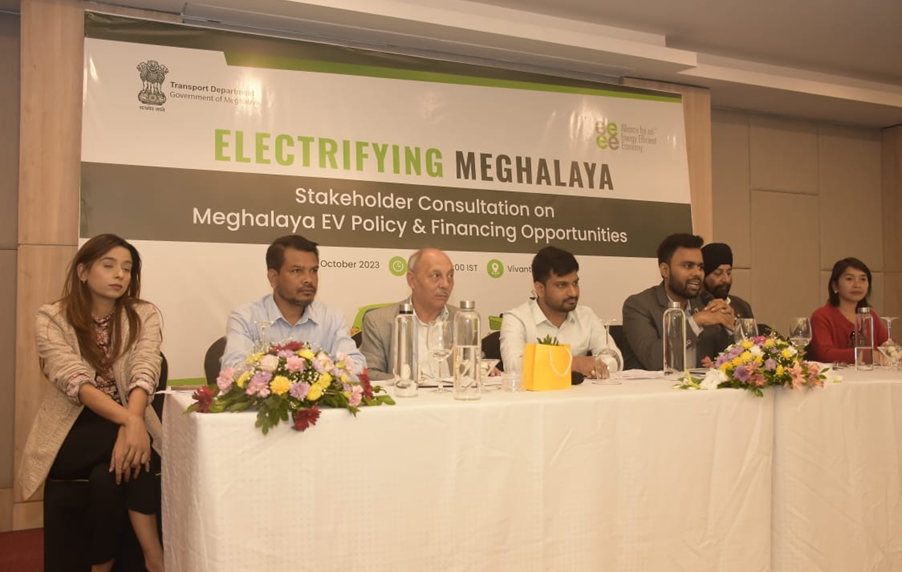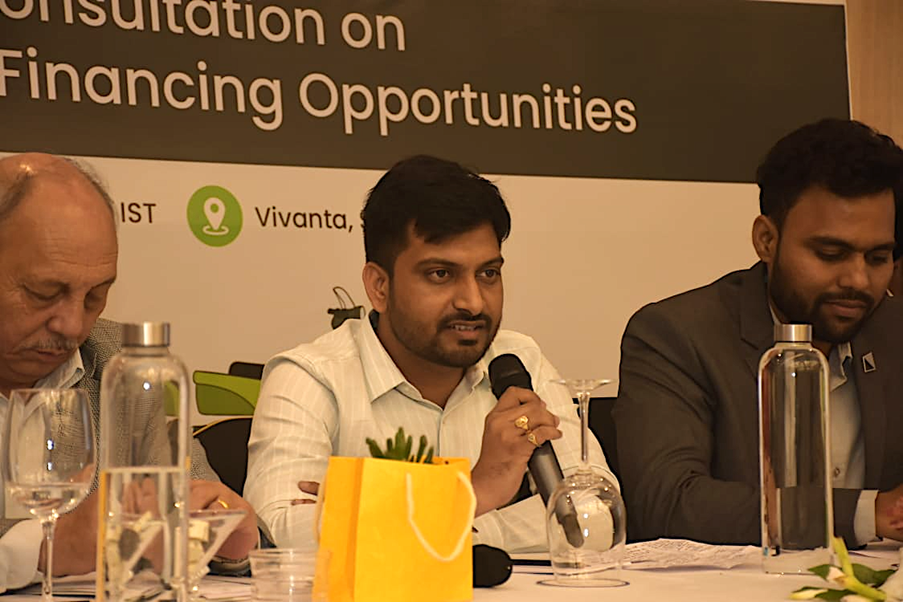Workshop Organised by Transport Department, Government of Meghalaya and AEEE

On October 18, 2023, the Alliance for an Energy Efficient Economy (AEEE) in collaboration with the Transport Department of the Government of Meghalaya organised a workshop titled ‘Electrifying Meghalaya: Stakeholder Consultation on Meghalaya EV Policy and Financing Opportunities’ to discuss the Meghalaya EV Policy 2021 and gather inputs on the proposed amendments. The workshop was attended by over 60 participants, representing a diverse range of stakeholders, including individuals from the Transport Department, Tourism Department, Power Department, Academics, Sustainable Transport and Efficient Mobility Society (STEMS), Prime Meghalaya, Financial Institutes, Taxi Association, Local NGOs, OEMs, Shillong Hotels Association, Local Aggregators, Skill Development Departments, Disability Agencies, Person with Disability, and Local Entrepreneurs, with a special emphasis on women and individuals from marginalised groups. The workshop was graced by Shri Ethelbert Kharmalki, IAS, Commissioner of Transport, Government of Meghalaya.
Shri Pramod Singh, kicked off the workshop with his welcome address wherein he discussed the current potential business models in the EV sector, emphasising transport as a service. He mentioned the State Government’s vision to transform the current ISBT into an electric hub capable of charging various EVs. Guest of Honour, Shri Ethelbert Kharmalki requested assistance in devising effective electric charging infrastructure and incentives. He also emphasised the need for consumer awareness and collaborative implementation among the Department of Tourism, Power and Transport. Prof. Prabha Shankar Shukla, Vice-Chancellor of North Eastern Hill University, gave the keynote address on electric mobility and its potential applications in Meghalaya.
Dr Vikas Nimesh Sr Research Associate, AEEE presented the Meghalaya EV Policy 2021 and the proposed amendments to all the guests and participants. As a part of the stakeholder consultations, two-panel discussions were held.
Electrifying Meghalaya Transport: Exploring Meghalaya’s EV Policy, Amendments, and Future Outlook
This discussion offered various perspectives and recommendations from various stakeholders regarding the amendments to Meghalaya’s EV Policy. It prominently emphasized the essential factors for facilitating the transition to electric mobility in the region, namely, collaboration, behavioural change, and infrastructure development, along with the significance of timely incentives. Additionally, the discussion underscored the vital role of dedicated research and development, accessible financing options, and effective communication strategies as key drivers in the successful implementation of Meghalaya’s EV policy.
Navigating the Roadblocks: Financing Challenges in the E-Mobility and Entrepreneurship Landscape
This session covered various topics related to financing challenges and opportunities in the E-Mobility and Entrepreneurship Landscape. Panellists proposed innovative financing mechanisms, highlighted sustainability efforts in the hotel sector, emphasized the need for inclusivity in EV policies, and showcased initiatives like solar-powered E-bikes. They also called for government support, low-interest loans, and increased loan amounts to promote the adoption of electric vehicles.

“To address the financing challenges in the e-Mobility and entrepreneurship landscape in the state of Meghalaya, the state could explore the following options: 1) increase contributors to the state EV fund through the introduction of i) a pollution cess, where those contributing to pollution pay a tax converted into EV funds ii) congestion taxes on ICE vehicles during peak hours, to generate funds and reduce congestion by increasing the penetration of public transport during the high-demand hours; exploring the potential of low-interest loans from multilateral and social investment organisations; and exploit the potential of battery as a service and battery swapping to lower the upfront costs of EVs,” said Balaji R, Senior Programme Manager, Electric Mobility Initiative, Shakti,
Panellists in both sessions represented diverse sectors, including government, civil society, academia, entrepreneurs, hotels and taxi associations, offering a varied range of perspectives on the challenges hindering the intended adoption outlined in the Meghalaya EV Policy 2021.
